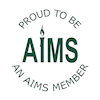Nurturing Birth’s blogs offer doulas, trainee doulas and those interested in becoming doulas informative and interesting articles on myriad topics around the childbearing year and parenting. Do share articles that you find helpful, and let us know [email protected] if there’s any topics that you’d like to see covered, or if you’d like to write for us!
Doula Courses | Mentoring | Support
- Book review – The AIMS Guide to Giving Birth to your PlacentaThe AIMS Guide to Giving Birth to Your Placenta, principal author Emma Ashworth, is available from AIMS and costs £8. Rachel Quickenden, Nurturing Birth read more
- Supporting second-time mothers in the shadow of CovidWritten by Nurturing Birth doula and epidemiologist, Georgia Ladbury It’s now three years since Covid first arrived on our shores, and it’s hard to read more
- Book Review: Breastfeeding Twins and Triplets. A Guide for Professionals and Parents by Kathryn StaggLesley-Sheena Robbins, Nurturing Birth doula, shares her thoughts on Kathryn Stagg’s book As a birth worker, I am always keen to get my hands on read more
- Neurodivergence and me – Sam Sheppard“I can’t facilitate in person“ After 3 years of facilitating the Nurturing Birth Distance Course online and loving every second, this is what read more
Footer
Award winning Doulas

MAMA Awards 2017
DOULA OF THE YEAR
Sophie Brigstocke,
Nurturing Birth
Get in touch
Telephone: 07305 044482
Email: [email protected]





